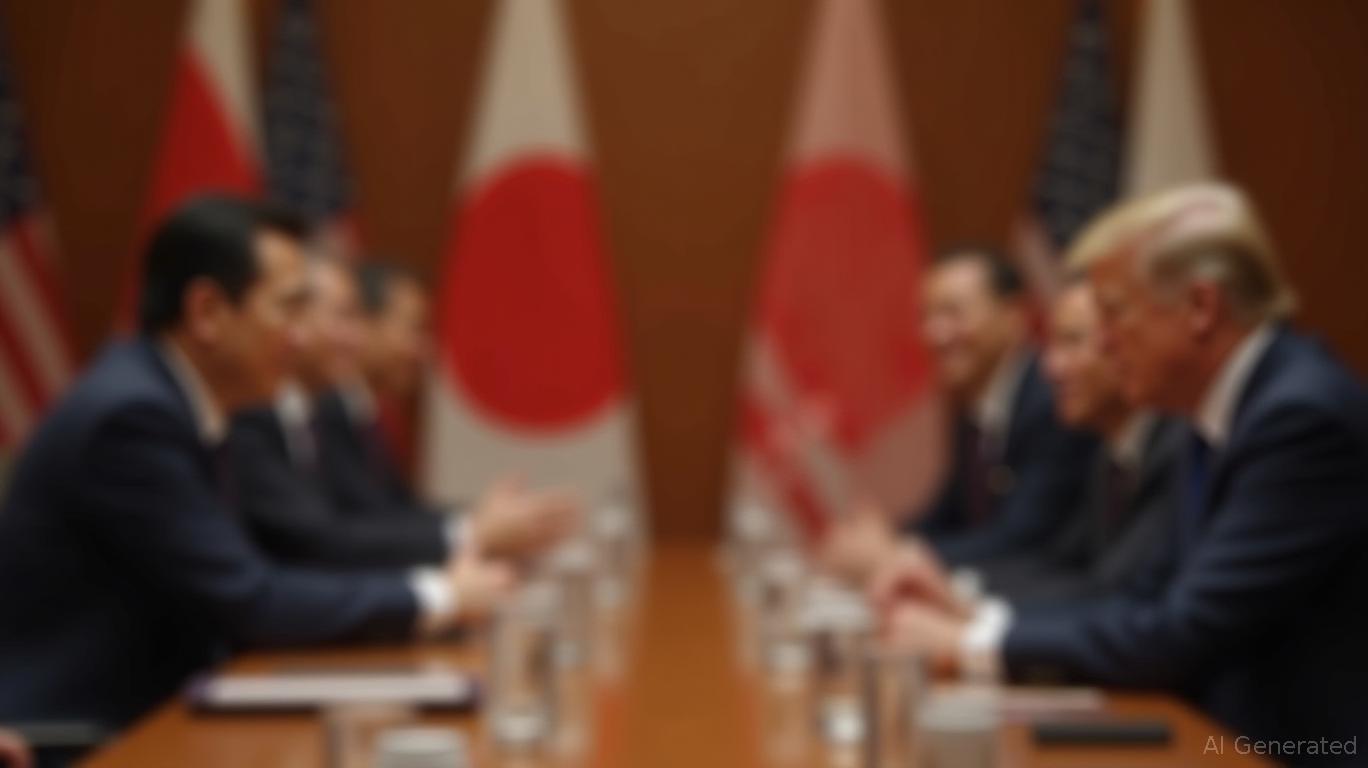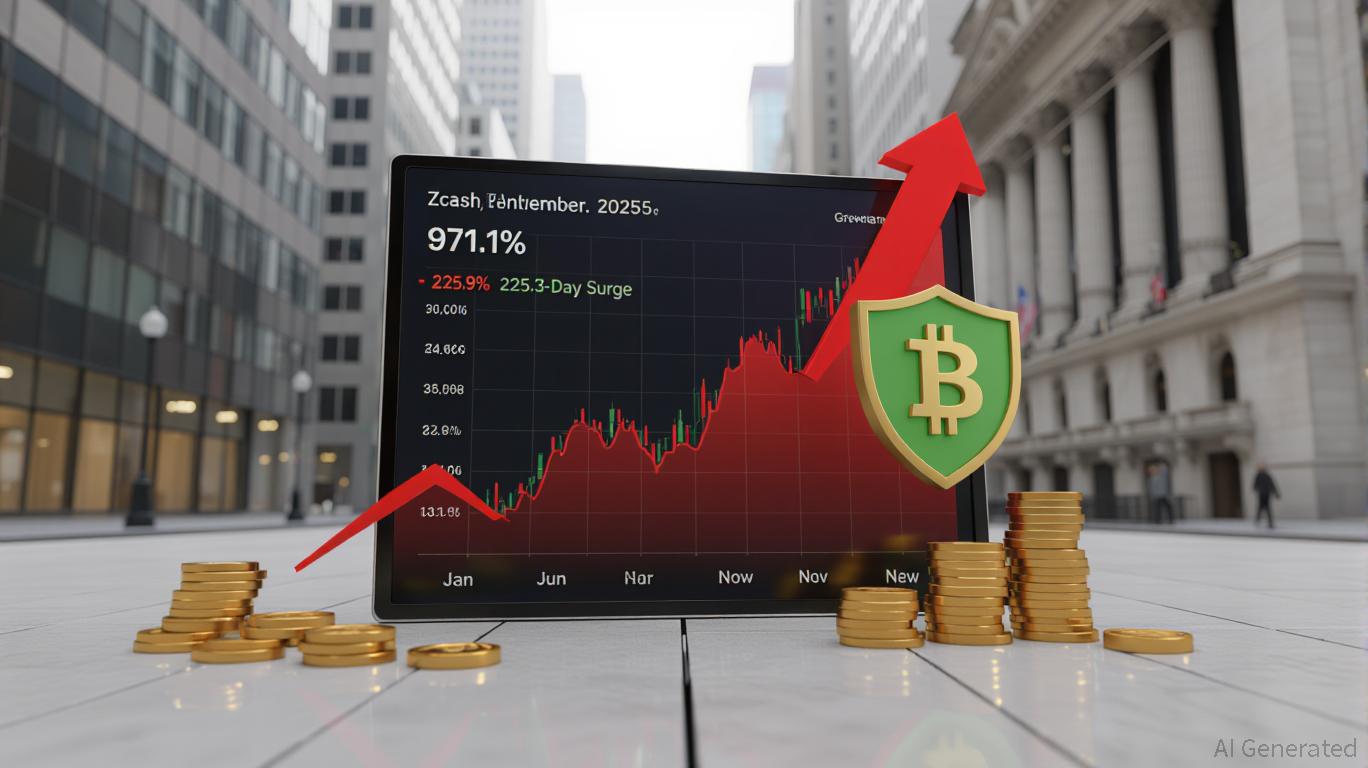Japan’s F-150 Move: Strategic Messaging Outweighs Practical Benefits in Trade Negotiations
- Japan displayed Ford F-150 trucks to Trump as symbolic gesture to ease trade tensions and align with U.S. preferences. - $550B investment package includes F-150 imports, praised by Trump but questioned for practicality in Japan's compact infrastructure. - Critics highlight logistical challenges and mismatched consumer preferences, contrasting symbolic value with real-world adoption limits. - Deal aims to strengthen U.S.-Japan ties ahead of Trump-Xi talks, balancing trade concessions with geopolitical lev
Japan's Unexpected Trade Emblem: The
By [Author Name]

President Donald Trump’s recent diplomatic engagement with Japan took an unexpected direction, focusing on a symbol of American automotive power: the Ford F-150 pickup. During his latest trip to Tokyo, Trump was welcomed by a lineup of F-150s at Akasaka Palace—a gesture from Prime Minister Sanae Takaichi intended to ease trade friction and appeal to Trump’s love of grand gestures, according to
This display came after Business Insider reported that Takaichi’s administration was preparing a $550 billion investment plan for U.S. ventures, covering soybeans, liquefied natural gas, and notably, Ford F-150s. Ever the entertainer, Trump applauded the move, describing the truck as “a hot truck” and complimenting Takaichi’s “excellent taste” during a press event on Air Force One, as detailed in
However, the F-150’s suitability for Japan is still in doubt. The nation’s infrastructure, built for smaller vehicles, makes it difficult for such large trucks to operate. Experts point out that logistical obstacles and Japanese buyers’ preference for compact cars may restrict the F-150’s popularity, according to
The broader trade agreement between the U.S. and Japan, reached under Trump’s threat of imposing 25% tariffs, involves Tokyo pledging the $550 billion investment in return for lower tariffs, as
The Ford F-150’s significance goes beyond trade. It represents a calculated strategy: by appealing to Trump’s preferences, Japan seeks to strengthen its position ahead of the president’s upcoming meeting with Chinese leader Xi Jinping, Spectrum Local News reported. Kristi Govella, a Japan specialist at the Center for Strategic and International Studies, told Spectrum Local News that highlighting strong U.S.-Japan relations could give Trump more leverage in broader diplomatic talks.
As Trump left Japan, he once again expressed gratitude for the investment commitment and suggested more cooperation ahead, including Toyota’s planned expansion of U.S. factories, according to
Disclaimer: The content of this article solely reflects the author's opinion and does not represent the platform in any capacity. This article is not intended to serve as a reference for making investment decisions.
You may also like
Stellar News Today: XLM Battles at $0.2705—Major Players and Sellers Face Off at Crucial Resistance
- Stellar's XLM token saw volatile trading on Nov. 7, with price consolidating near $0.2702 after hitting key resistance at $0.2777 amid surging institutional volume. - Coordinated institutional buying of 2.5M and 1.5M tokens reversed bearish momentum, defending $0.2663 support while confirming $0.2777 resistance through 45.09M-token volume spikes. - Market remains divided as XLM struggles to break above $0.2815, with analysts warning renewed selling pressure could accelerate declines below $0.2709 amid mi
Microsoft's investment in AI encounters doubts from investors amid a week-long decline
- Microsoft shares fell for seven consecutive sessions, marking its longest losing streak since 2011, driven by AI spending skepticism and market rotation. - The selloff erased $350B in market cap despite strong Azure growth (40% YoY) and $77.77B Q1 revenue, highlighting investor focus on long-term AI ROI. - Analysts cite $34.9B AI capex, regulatory risks, and Australia refunds as challenges, contrasting with Apple's 0.9% gains amid reduced AI dependence. - Strategic moves like the $9.7B IREN AI deal and "
Zcash (ZEC) Price Rally: Could This Signal a New Era for Privacy Coins?
- Zcash (ZEC) surged 971.1% in 2025, reaching $409, driven by technical upgrades, regulatory shifts, and institutional adoption. - Privacy coins' market cap rose 80%, with Zcash and Dash hitting multi-year highs amid stricter global regulations. - Grayscale's $85M Zcash Trust and innovations like shielded transactions highlight privacy as a premium asset in crypto. - Regulatory challenges persist, but 73% of privacy coin users prioritize anonymity, with 24% of new wallets institutional. - Zcash's flexibili

